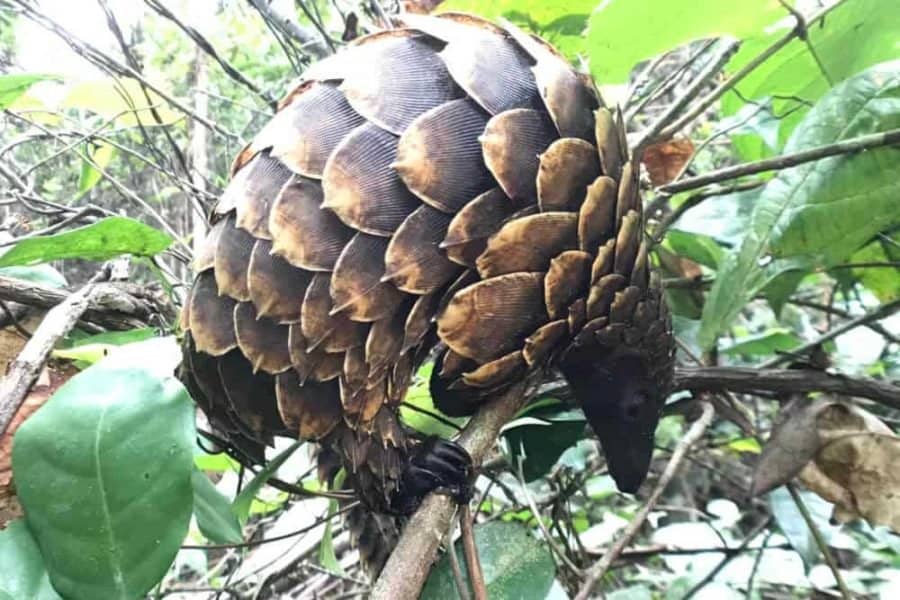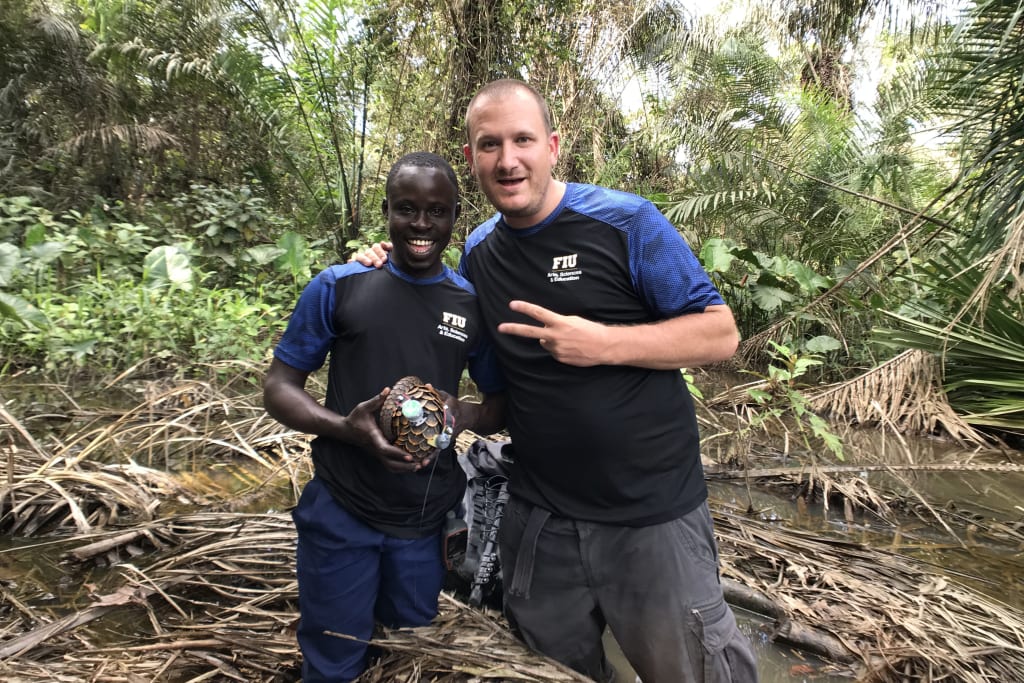For the first-time ever, scientists have deployed animal-borne cameras on pangolins — the world’s most trafficked wild mammal.
They look like an armored anteater (they’re not, though they do eat ants), curl up in a ball like an armadillo, but are more closely related to dogs. They exist in their own taxonomic order — Pholidota. They are covered in scales made of keratin, making them the only truly scaly mammal on the planet. They are predominantly nocturnal, elusive, understudied, and their populations are in trouble.
Eight species of pangolins exist in Africa and Asia and have long been exploited for food and medicine. Today they are poached for international wildlife trafficking for their scales. All eight are threatened with extinction. Nearly 1 million pangolins have been taken from the wild in the past three years in Africa alone. Pangolins are in need of urgent conservation action, according to Matthew H. Shirley, a researcher in FIU’s Tropical Conservation Institute.
Shirley leads a team amassing much-needed data about these elusive and relatively unknown animals. Baseline knowledge about their biology, ecology and cultural significance currently does not exist, and conservation officials do not have the information they need to develop management programs to protect and restore populations.
“Pangolin conservation actions and sustainable management strategies are especially hindered by the lack of ecological and anthropogenic data in West Africa,” Shirley said. “This is especially true for the black-bellied pangolin, which is the least known pangolin in the world.”

Black-bellied pangolins are nearly impossible to observe in the wild, he said. But a combination of technologies is starting to reveal critical information about the private lives of these secretive animals.The team, which includes scientists and documentary filmmakers, first deployed radio transmitters and data-loggers for temperature and light on wild black-bellied pangolins in the West African country of Cote d’Ivoire. Later, they successfully outfitted a pangolin with an animal-borne camera dubbed the Pango-Cam. It is the first time an animal-borne camera has ever been deployed on any pangolin species anywhere in the world.
“While the data is only starting to be analyzed, we’ve already seen important glimpses into what tree species our animals prefer to occupy, the species of ants they prefer to feed on, and just how cryptic they can be in the forest canopy,” Shirley said.
The Pango-Cams are helping the researchers understand what black-bellied pangolins do, where they do it, and how their behaviors change across habitats and seasons. They were designed in collaboration with Katie Schuler of Coral & Oak Studios and National Geographic Society’s Exploration Technology Lab and Crittercam engineer Kyler Abernathy.
“We really started freaking out and exchanging high-fives in the dark when we finally saw the first footage that night and she began devouring an ant nest as if nothing was out of the ordinary,” Schuler said. “It was amazing to watch her find the nest and to hear the sound of her tongue lapping up the ants. We knew this was only the beginning and put a plan in motion to capture as much Pango-Cam footage as possible.”
Shirley and Schuler believe the information they are collecting will advance conservation plans in partnership with the parks and wildlife authorities of Cote d’Ivoire and all across West Africa. The team is also collaborating on a natural history documentary to share the plight of pangolins with people all across the world. They hope that as more people discover pangolins, these critically endangered animals will have a fighting chance on this planet.



Fantastic! & long past due. The REAL problem is, too many stupid humans, over-populating & refusing to actually think about the consequences of what they do. For females, the worldwide maximum births should be 2. Surrogate motherhood & sperm banks should be outlawed. These should be done immediately. Humans DO NOT own the earth; we share her. With pangolins & all other species. Humans have become a cancer. We need to fix that; asap.